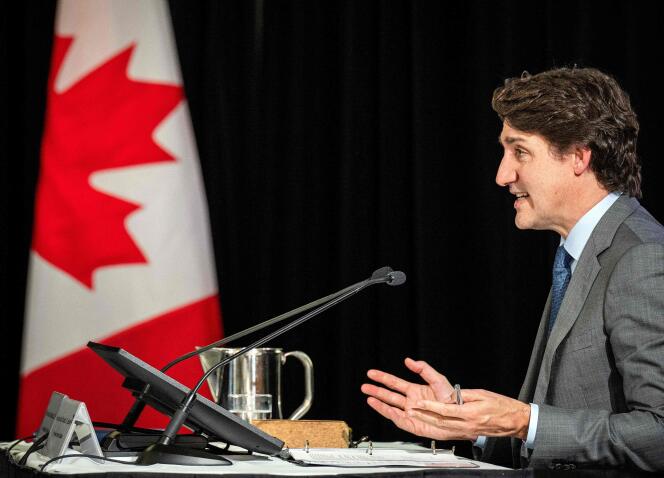
"Axe the tax!" The revolt against the carbon tax is continuing to grow in Canada. The tax on pollution, introduced by Liberal Party Prime Minister Justin Trudeau in 2019, is one of the flagship measures of his policy to combat climate change. The government estimates that it will help reduce greenhouse gas emissions by up to a third by 2030.
However, its increase on Monday, April 1 – from 65 Canadian dollars (€44) to 80 Canadian dollars per metric ton, or 17 Canadian cents per liter of gasoline, and expected to continue rising until it reaches 170 Canadian dollars in 2030 – has provoked fresh furor among its opponents. The offensive has been facilitated by Trudeau's reversals on the issue. In October 2023, he opened a loophole in his own pollution tax system, introducing a three-year payment exemption for all consumers using heating oil.
Applied in eight of Canada's 10 provinces and two of its territories (the others have their own carbon markets), the environmental tax is now being contested by seven provincial ministers. Leading the way are the Conservative leaders of Ontario and the oil and gas provinces of western Canada, such as Alberta, who have never stopped railing against the pricing system's very principle, on the grounds that it harms the attractiveness of their industries. On January 1, the premier of Saskatchewan even went so far as to unilaterally decide to exempt his province's natural gas and electricity consumers from the tax's regulations.
At the end of March, the so-called Atlantic provinces in eastern Canada also called on the federal government – to no avail – to refrain from any further increases, concerned with its inflationary impact on taxpayers' wallets. These arguments are echoed by Trudeau's main political rival, Conservative Party of Canada leader Pierre Poilievre, who is leading the polls: "[The carbon tax is] driving production out of our country and it's driving Canadians to go hungry," he said on March 13, during a visit to Newfoundland and Labrador.
Reassuring small businesses
To date, the offensive has essentially been a political one. Nevertheless, it is based on growing popular discontent. A poll conducted by the Angus Reid Institute made public on March 25 revealed that 40% of Canadians were calling for the tax to be abolished. For several weeks now, demonstrations by hundreds of disgruntled consumers have been disrupting traffic on several highways across the country.
To prevent the protests from spreading, Prime Minister Trudeau has tried to regain control of the situation, using a pedagogical approach. In a letter sent on March 26 to the provincial premiers, but aimed more broadly at convincing public opinion of the merits of his environmental policy, he assured them that it was wrong to assert that carbon pricing was a major driver of inflation. "According to the Bank of Canada, the carbon price is only responsible for about 0.1 percentage points of annual inflation," he argued.
You have 26.61% of this article left to read. The rest is for subscribers only.